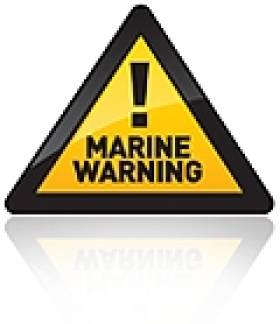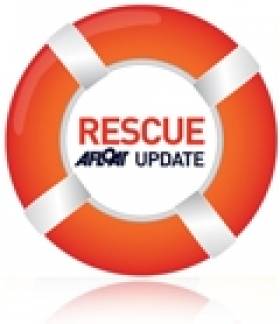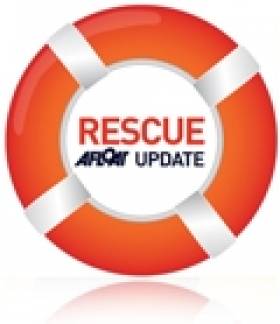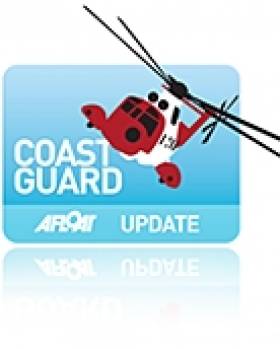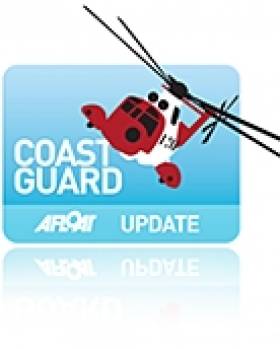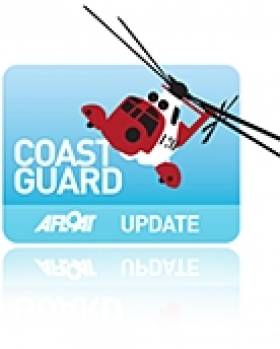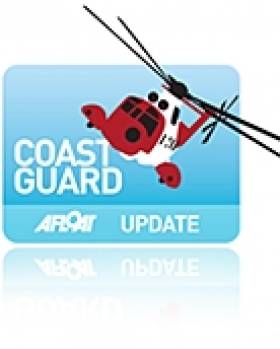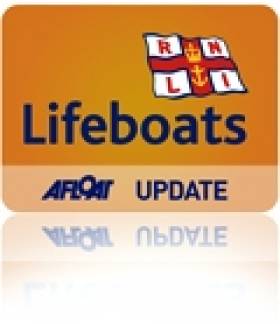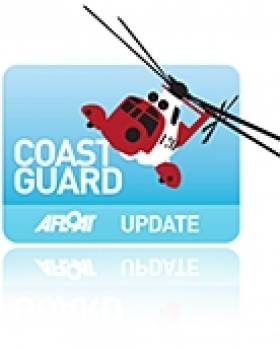Displaying items by tag: Coastguard
Launching? Check Your Boat Maintenance
"Many of the water-based incidents that we deal with at this time of year involve engine breakdown as a result of lack of maintenance," says Garry Hall of the UK's Solent Coastguard. "People report running out of fuel, sometimes because fuel indicators are broken or because fuel can't get through pipes and the engine is starved. Electrical issues are also a frequent problem. Often oxidation happens if engines are laid open to the elements and it affects the wiring. Engines are susceptible to frost so following our cold winter they will certainly need a good service."
Ideally attend a Diesel engine maintenance course, see:
www.rya.org.uk/coursestraining/courses/specialist/Pages/Diesel.aspx
Whilst you're considering maintenance, don't forget to look at your lifejackets and make sure that they are functioning fully. Remove the cylinders and auto-mechanisms, washing them in fresh water. Now inflate the lifejackets using a hand pump, leaving them for 24 hours to make sure that they don't deflate. Then reassemble the lifejacket, ensuring that the cylinder is screwed back in securely. The RNLI have some good advice about how to maintain your lifejacket on their website. Go to www.rnli.org.uk/seasafety
Appropriate and fully functioning communications equipment will be vital should you find yourself in an emergency situation. Have you got all the right equipment?
Check all your existing communication equipment. Ensure your VHF DSC radio unit's MMSI registration is up to date with Ofcom so that the Coastguard has the right emergency contact details. If you have an emergency position-indicating radio beacon (EPIRB) or a personal locator beacon (PLB), replace batteries before they expire and don't just rely on the "test" button. Also ensure the beacon's registration details are up to date so that the Coastguard has the right emergency contact details and correct information for both yourself and your vessel.
Two Boys Rescued From Holyhead Harbour
Holyhead RNLI's lifeboat was dispatched on Tuesday morning to rescue two boys from a rocky outcrop just outside Holyhead harbour.
The boys, aged 13 and 14, had ventured out to Piebio Island, which is accessible at low tide, but quickly became stranded when the water rose.
After receiving a 999 call from the boys, Holyhead Coastguard tasked Holyhead RNLI with their recovery. The boys were soon retrieved and returned to school by the coastguard rescue team.
Holyhead Coastguard watch manager Barry Priddis urged anyone going to the coast over the Easter school holidays to make sure they keep aware of the tide times.
"We want everyone to enjoy their holidays at the coast and to go home safe," he said.
Search Resumes for Missing Fishermen Off Skerries
The lifeboat and Coastguard search for two fishermen missing off the north Co Dublin coast has resumed this morning.
The Irish Times reports that the two men, believed to be in their 20s and 40s, were on a small open fishing boat that departed Skerries harbour around 11am yesterday (Friday 1 April). The alarm was raised at 6.30pm when they failed to return to port.
A Dublin Coast Guard spokesperson confirmed that items and debris believed to be from the missing boat were discovered during the initial search yesterday evening.
The search, involving three coastguard units, three lifeboats and a number of local vessels, was scheduled to resume at 7am this morning.
RTÉ News has more on the story - including video - HERE.
British Coastguard Fears Loss of Choppers
The union representing coastguard staff in the UK has expressed its fears over the loss of air rescue services when a number of helicopters are transferred to Ireland next year.
Under CHC's €500m contract to provide search and rescue services for the Irish Coast Guard, four helicopters will be withdrawn from England and Scotland for redeployment in Ireland.
However, HeraldScotland reports that the Maritime and Coastguard Agency (MCA) has no plans to replace these helicopters, which separately service Scotland's Isle of Lewis and Shetland Islands as well as the Solent and Portland in England.
The recent collapse of the privatisation deal for UK search and rescue services has meant there is no new operator lined up to replace CHC.
Jeremy Gautrey of the PCS union said that the situation "has now potentially left the coastguard service stranded without the guarantee that it will have sufficient helicopters to carry out search-and-rescue operations when the current helicopters retire."
HeraldScotland has more on the story HERE.
Speaking today, Minister for Transport Leo Varadkar TD said: This invitation to Achill Coast Guard Unit is an acknowledgement of the life-saving work that this Unit (and indeed all our Volunteer Units) around the country are engaged in every day of the year. Every day, these people selflessly risk their own lives to save others in all weathers, day and night, often in very dangerous conditions. This invitation is in recognition of their work and is an indication of the high esteem in which our Coast Guard Units are held internationally."
Achill Island Coast Guard Unit is made up of 24 volunteers who carry pagers and are available on 15 minutes' notice day and night 365 days a year. In August 2009 the Unit took part in a search and rescue operation for a person who fell into the Atlantic Ocean while fishing off the rocks near Achill Island. In response to this incident, the Achill Coast Guard rescue boat was launched together with local RNLI Ballyglass Unit and the Sligo Coast Guard helicopter during very hazardous weather conditions. The casualty (a Mr. Patrick Williamson) who amazingly stayed afloat swimming in high seas for over an hour was successfully rescued and spent 5 days in intensive care following his ordeal in the sea.
On making a full recovery, Mr. Williamson nominated Achill Island Coast Guard Unit for a National Courage Award. Previous recipients of this honour include the Irish Army (for peacekeeping duties) and former Taoiseach Mr. Bertie Ahern (for his involvement in the peace talks in Northern Ireland).
Director of the Irish Coast Guard, Mr. Chris Reynolds today said: "The Achill Coast Guard Unit is well-deserving of this honour and I congratulate them on being part of this special event. It is a great recognition of the standard and quality of service the Coast Guard provide and I thank Mr. Williamson along with all who helped make this happen for inviting them to take part in this special event."
Programme for Government will Reinstate Marine Department
It maybe the second last item on the programme for government issued by Enda Kenny and Eamon Gilmore yesterday but the indications are good that the marine sector will see a reinstated Department of the Marine. the Fine Gael and Labour coalition say 'marine responsibilities will be merged under one Department, for better co-ordination in policy delivery'. Here is the relevant excerpt:
Coastal communities, fisheries & marine environment
We will negotiate the best possible deal for fishermen in the review of the Common Fisheries Policy.
We will support the development of sustainable aquaculture and fish farms by streamlining the licensing process and reducing associated bureaucracy.
Marine responsibilities will be merged under one Department, for better co-ordination in policy delivery. We will develop an integrated marine and coastal planning process in order to maximise the potential of Ireland's coastline in fishing, aquaculture, ocean energy and tourism.
A Sea Fisheries Sustainability Impact Assessment, based on consultation with all major stakeholders, will be brought before the Dáil annually before EU fisheries negotiations commence.
We will replace criminal sanctions system for minor fisheries offences with administrative sanction system to bring Ireland into line with other European jurisdictions. Safety at sea and decent working conditions must underpin the development of the fisheries sector. We will explore the provision of an emergency towing vessel for the Coastguard.
Public Meeting in Belfast on Coastguard Modernisation Proposals
The meeting will provide an opportunity for the community around the existing Belfast Maritime Rescue Coordination Centre (MRCC) to hear more about the proposals, ask questions of MCA representatives and air their views.
The meeting at Marine Court Hotel, 18-20 Quay Street, Bangor. BT20 5ED will be independently chaired and begin at 7:30pm. The meeting is expecting to draw to a close by 9:00pm.
The proposals for Coastguard modernisation, together with the consultation documents, can be found on the MCA website at www.mcga.gov.uk and www.dft.gov.uk
Missing 18-Year Old Found After Two Hour Search in Bangor
The call came in at 23.40 from a member of the marina staff after the boy's two friends had told him that all three of them had climbed over the gate into the pier, but that their friend had not come back and they were concerned that he must have fallen into the water.
Belfast Coastguard sent the Bangor Coastguard Rescue Team to begin a search, as well as requesting the launch of the Bangor RNLI lifeboat. Members of the Police, Ambulance and Fire Service are also on scene.
At 01.50, the boy was found hiding in a compartment in the crew accommodation of a fishing vessel near the pier, and the search was stood down.
Belfast Coastguard Watch Manager Alan Pritchard said:
"This group of three boys had been at a birthday party in the town before climbing the gate this evening to access the pier. Incidents such as these remind of us of the dangers of being in proximity to the water when you have been drinking alcohol – be it going swimming, or walking along cliffs or piers. Although on this occasion the boy has been found safe and well, this could easily have been a much more serious incident."
Bangor Lifeboat Reunite Missing Child with Parents
Belfast Coastguard received the initial call for help and requested RNLI Bangor Lifeboat to launch immediately and start searching the shoreline between Lukes Point and Ballyholme Bay.
Within minutes of the rescue pagers being activated volunteer crew at RNLI Bangor Lifeboat had assembled and launched the lifeboat.
Knowing that this type of rescue was time critical, volunteer crew not on board the lifeboat proceeded on foot and by bike to the Ballyholme Bay area.
Thankfully one of the RNLI volunteers on shore spotted the young boy ½ mile from the initial search area and was able to reunite him with his parents.
Peter Semple the volunteer crew member who found the young boy said. 'We are extremely happy and relieved that the young boy has been found'. He added 'We were delighted to reunite him with his parents'.
Related Safety posts
RNLI Lifeboats in Ireland
Safety News
Rescue News from RNLI Lifeboats in Ireland
Coast Guard News from Ireland
Water Safety News from Ireland
Marine Casualty Investigation Board News
Marine Warnings
Bangor Closure 'Will Not Diminish Safety' Says MCA Chief
Proposals to close Northern Ireland's only coastguard control centre "will not diminish safety" at sea, according to the head of the UK's Maritime and Coastguard Agency.
The Irish Independent reports that Vice-Admiral Sir Alan Massey insisted coastal emergency services would be "enhanced" under plans to streamline the British coastguard station network.
Nineteen stations will be reduced to just two 24-hour centres - in the south of England and at Aberdeen on Scotland's east coast. Five day-only centres would also be retained, with one located at either Liverpool or Bangor.
The MCA chief executive said that local knowledge could be enhanced by centres providing services over a larger area.
But a union representative accused the MCA of proposing a skeleton service that could put lives in jeopardy.
Ian Graham of the NI branch of the Public and Commercial Services Union, which represents staff at the Bangor centre, said: ""All the knowledge that people in the station have will be lost forever and that will put everyone who uses the sea and inland waterways at risk."
The Irish Independent has more on the story HERE.


























